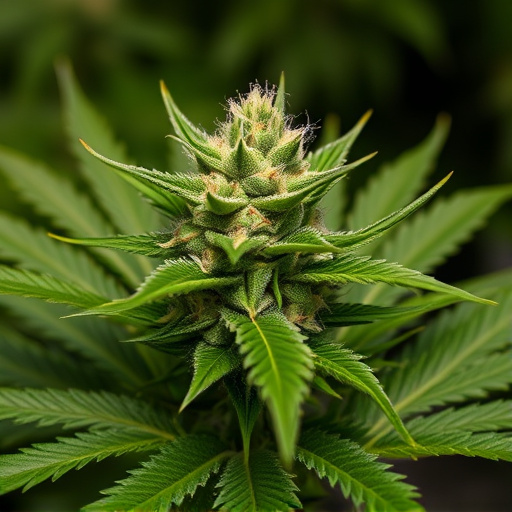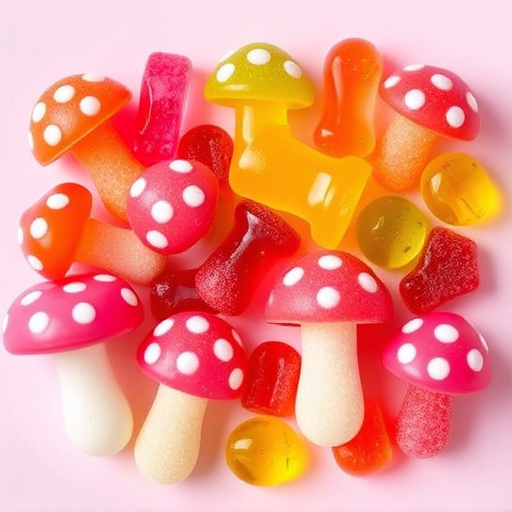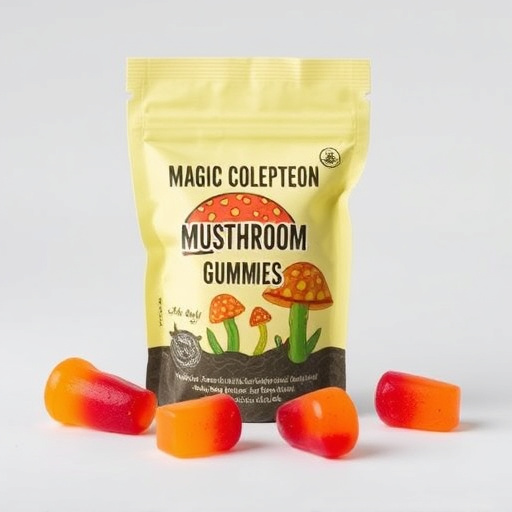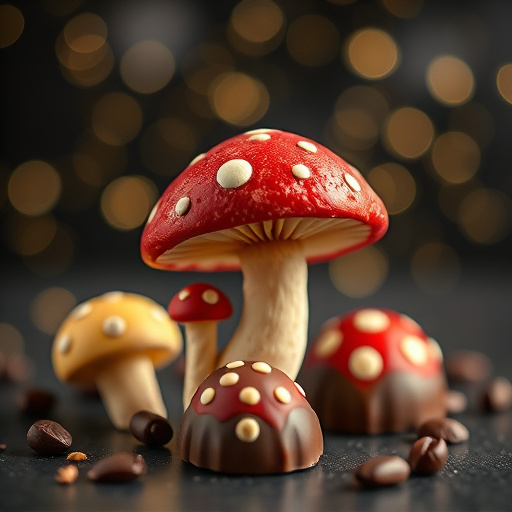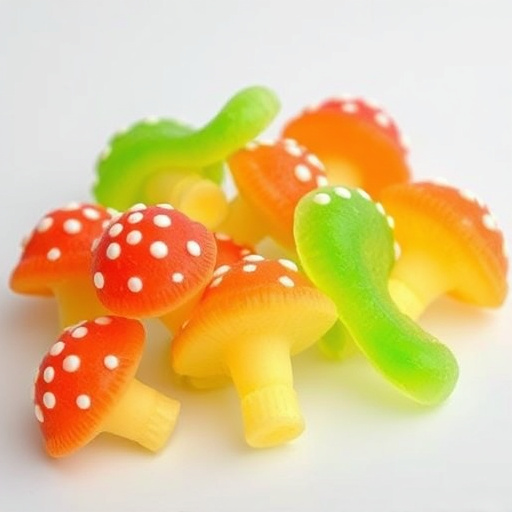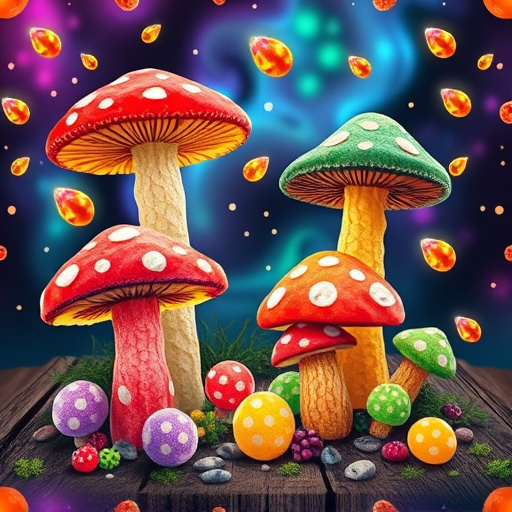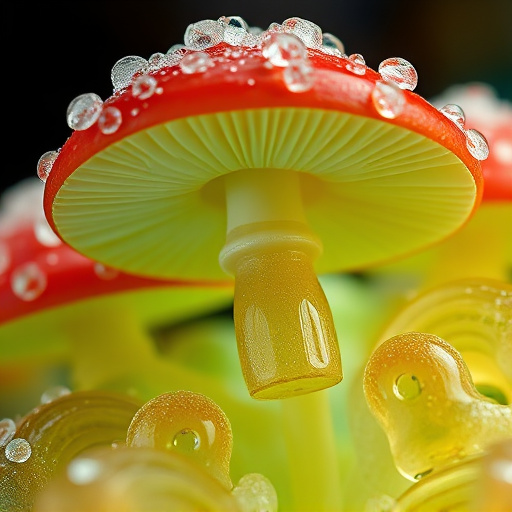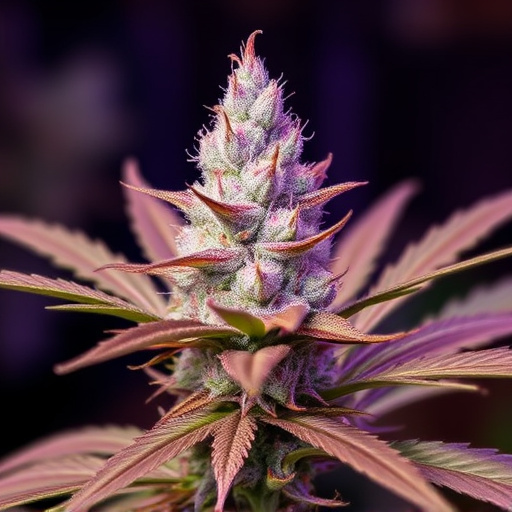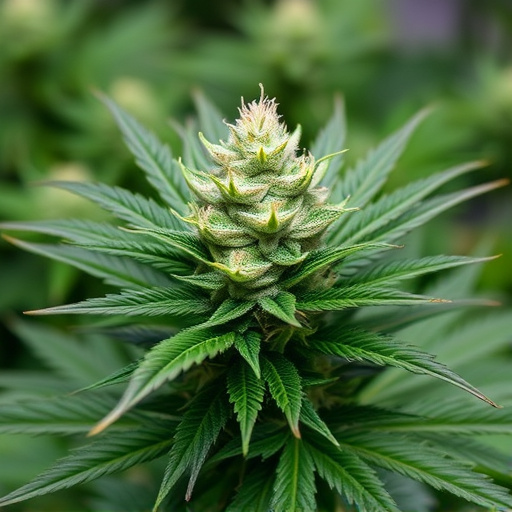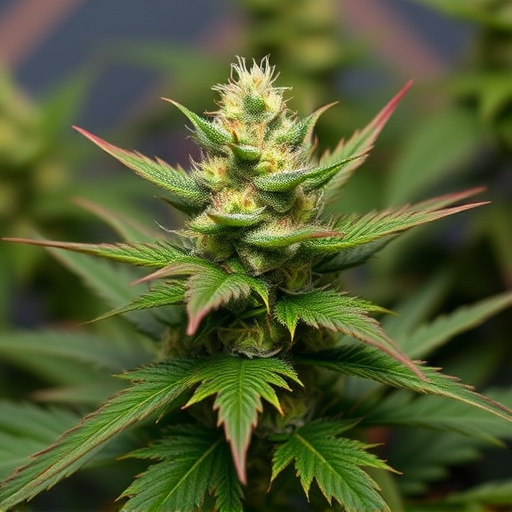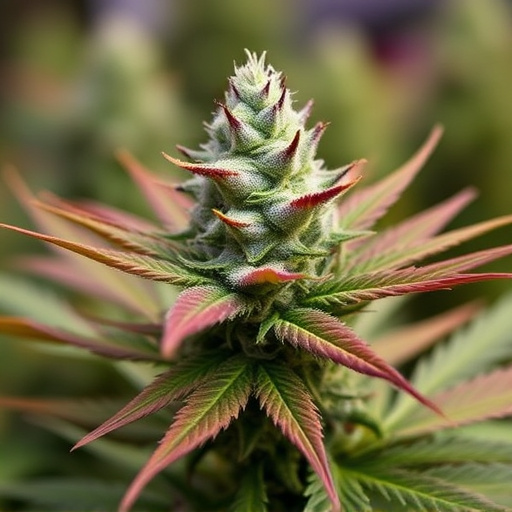Cannabis consumption influences 'feel-good' chemicals dopamine and serotonin through its cannabinoids, notably THC, impacting mood, pleasure, and motivation. Best-selling cannabis strains vary in their cannabinoid profiles, offering either temporary euphoria (high-THC) or potential therapeutic benefits for depression and anxiety (CBD-rich). These interactions provide insights into the appeal of these strains and highlight ongoing research into cannabis' medical potential.
“Unraveling the complex relationship between cannabis, dopamine, and serotonin is key to understanding its impact on our reward systems and mood. This article delves into the neurochemical dance, exploring how cannabis interacts with two powerful neurotransmitters—dopamine, the ‘feel-good’ chemical, and serotonin, integral to emotional balance. We examine the effects of best-selling cannabis strains, providing insights into their potential to modulate these neurotransmitters, offering a comprehensive guide for those curious about the science behind cannabis’s influence on our brains.”
- Understanding Dopamine and Serotonin: The Neurotransmitters of Reward and Mood Regulation
- Cannabis and Its Impact on Dopamine and Serotonin Systems
- Exploring the Effects of Best-Selling Cannabis Strains on Neurotransmitters
Understanding Dopamine and Serotonin: The Neurotransmitters of Reward and Mood Regulation
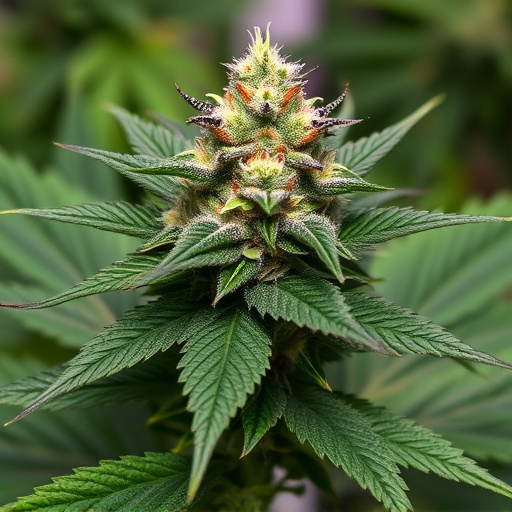
Dopamine and serotonin are two essential neurotransmitters that play a pivotal role in various physiological and cognitive functions, particularly in regulating mood, motivation, and reward. Often referred to as the ‘feel-good’ chemicals, they significantly influence our emotional state and overall well-being.
In the context of cannabis consumption, these neurotransmitters come into play due to the plant’s unique chemical composition. Cannabis contains numerous compounds known as cannabinoids, with tetrahydrocannabinol (THC) being the most renowned. THC interacts with the endocannabinoid system in our bodies, which is responsible for maintaining homeostasis, including regulating dopamine and serotonin levels. This interaction can lead to the psychological effects associated with cannabis use, and why certain best-selling cannabis strains are known for their ability to enhance pleasure and reward sensations, making them popular choices among consumers seeking relaxation or mood elevation.
Cannabis and Its Impact on Dopamine and Serotonin Systems
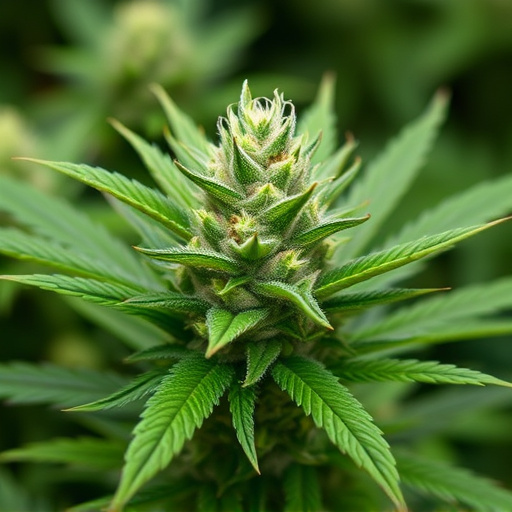
Cannabis has a complex relationship with our brain’s neurotransmitters, particularly dopamine and serotonin. These chemicals play pivotal roles in regulating mood, pleasure, motivation, and cognitive functions. When cannabis is consumed, especially through popular strains known for their high THC content—like those topping the best selling cannabis strains lists—it interacts with the endocannabinoid system (ECS) in our bodies. The ECS modulates neurotransmitters, including dopamine and serotonin, by binding to receptors located throughout the brain and body.
The impact of cannabis on these systems is multifaceted. On one hand, THC can stimulate dopamine release, leading to feelings of euphoria and pleasure, which may underlie some of the recreational appeal of cannabis. However, this stimulation is short-lived, and chronic use may even lead to a decrease in dopamine sensitivity, potentially contributing to issues like dependence or addiction. Serotonin, involved in mood regulation and appetite control, also interacts with cannabis. While research is still evolving, some studies suggest that cannabis can modulate serotonin levels, which might help explain its effects on mental health conditions like depression or anxiety. Understanding these intricate interactions offers valuable insights into both the potential therapeutic benefits and risks associated with cannabis use.
Exploring the Effects of Best-Selling Cannabis Strains on Neurotransmitters

Cannabis has long been known for its diverse effects on the human body, particularly its impact on neurotransmitters like dopamine and serotonin. When it comes to understanding how different strains affect these chemical messengers, exploring the best-selling cannabis strains is a fascinating area of study. These popular varieties, often celebrated for their unique aromas, flavors, and potential therapeutic benefits, can offer insights into the complex relationship between cannabis and brain chemistry.
Each strain possesses distinct cannabinoid profiles, including THC (tetrahydrocannabinol) and CBD (cannabidiol), which are known to interact with the endocannabinoid system. High-THC strains, for instance, may stimulate dopamine release in the reward centers of the brain, leading to heightened pleasure and motivation. On the other hand, CBD-rich strains are associated with more subtle effects, potentially modulating serotonin levels and promoting a sense of calm without the psychoactive effects of THC. By studying how these best-selling cannabis strains influence neurotransmitters, researchers can better comprehend the plant’s therapeutic potential and its role in various medical conditions.
In conclusion, cannabis’s effect on dopamine and serotonin systems, particularly those observed in popular cannabis strains, offers insights into its potential therapeutic applications for mood regulation and reward-related disorders. While further research is needed to fully understand the complex interplay between these neurotransmitters and various cannabis compounds, the current findings highlight the importance of exploring safe and targeted use of best-selling cannabis strains as a complementary approach to traditional treatments.
